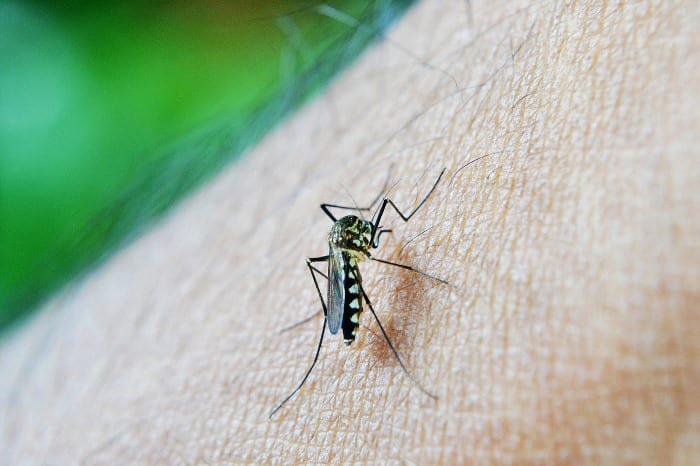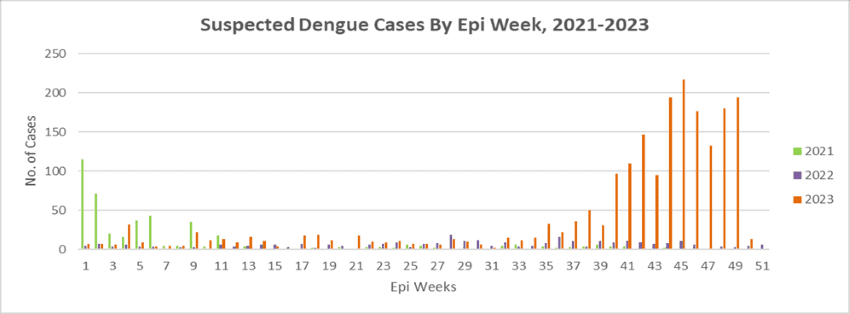
The Ministry of Health and Wellness has reported that there have been no deaths related to acute dengue in Barbados since the start of an outbreak of the mosquito-borne illness in November 2023.
It has been further stated by the Ministry that there may be some early evidence that the outbreak is showing signs of slowing down.
While there have been a number of hospitalisations, including some with severe dengue, health authorities said there were no deaths attributed to dengue for the period November to December 2023.
Up to the week ending December 26, 2023, increased reports of clinically suspected (2,105) and laboratory confirmed (277) cases of dengue fever have been recorded in Barbados compared to the same period in 2022, when there were 321 suspected cases.
The Type 2 dengue virus was the predominant virus during the last three months, followed by the Type 3 strain. The outbreak of dengue fever began in October 2023, intensified in November, and continued into December 2023.

Dengue is an acute mosquito-borne febrile illness caused by infection with one of the four known dengue viruses. It is endemic in Barbados with occasional outbreaks. When symptomatic, persons typically begin to experience fever three to 14 days after infection and may also have headache, vomiting, muscle and joint pains, and a characteristic skin rash. With a self-limiting disease, recovery generally takes two to seven days. In severe cases, usually heralded by warning signs, infection may result in organ failure and death.
Clinicians are asked to be aware of the signs and symptoms of dengue fever and are reminded to review patients for the warning signs which indicate the high likelihood of developing severe disease. Blood samples should also be taken within seven days of onset of symptoms to be tested by PCR to confirm the diagnosis as well as to reveal the virus serotype at the Best-dos Santos Public Health Laboratory.

The Ministry of Health & Wellness should be notified of any suspected dengue diagnoses, including the date of onset of symptoms. The patient’s address and contact information should also be included to facilitate mosquito control.
Members of the public are reminded to protect themselves from further mosquito bites with appropriate skin coverings, mosquito nets or chemical insect repellents. The Vector Control Unit has been conducting its weekly fogging programme to control the mosquito population.
The Ministry also reported that respiratory illnesses have increased in the past four weeks, up to the week ending December 22, 2023. However, health officials have pointed out that cases have not reached the epidemic threshold.

Additionally, the Ministry stated that levels of diagnosed COVID-19 showed a doubling of cases in the past week after eight weeks of very low levels, from four cases in the last four weeks to eight cases in the week ending December 22, 2023.
Influenza levels also continued to increase with the majority of the 312 influenza cases for 2023 occurring in the past eight to 12 weeks with increases in Influenza A H1N1(2009), Influenza A H3N2, and Influenza B.
No cases of Respiratory Syncytial Virus (RSV) have been recorded in Barbados despite its presence in tourism source markets. The public is encouraged to practise stringent respiratory hygiene with use of hand washing, hand sanitising, and mask wearing by those with symptoms, or those vulnerable to severe disease.
